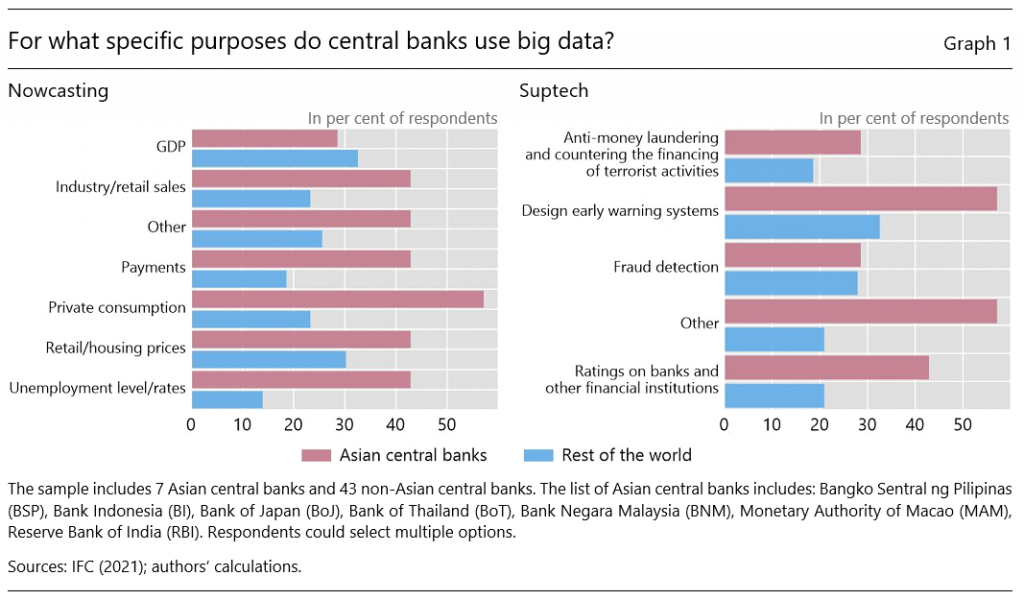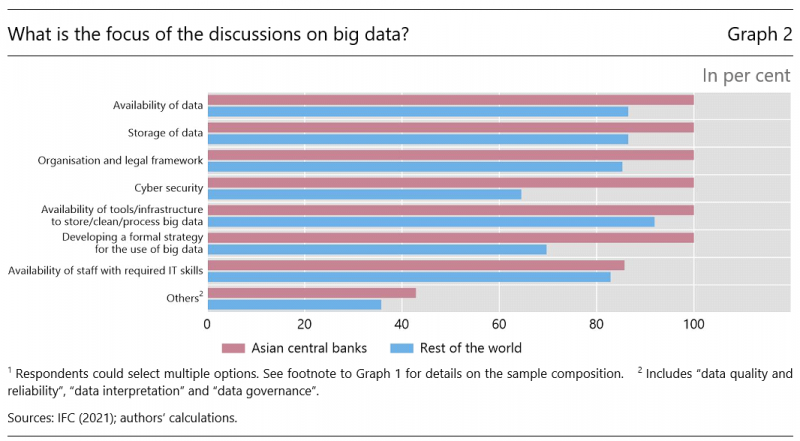References
Armantier, O, S Doerr, J Frost, A Fuster and K Shue (2021): “Whom do consumers trust with their data? US survey evidence”, BIS Bulletin, no 42.
Chantharat, S, A Lamsam, K Samphantharak and P Tangsawadirat (2017): “A new perspective on Thai household debt through credit bureaus’ big data”, PIER discussion paper, October.
Chen, S, S Doerr, J Frost, L Gambacorta and H S Shin (2021): “The fintech gender gap”, BIS Working Papers, no 931.
Coeuré, B (2020): “Leveraging technology to support supervision: challenges and collaborative solutions”, speech at the Financial Statement event series, Peterson Institute for International Finance.
Cornelli, G, S Doerr, L Gambacorta and B Tissot (2022): “Big data in Asian central banks”, IFC Working Papers, no 21.
Cornelli, G, S Doerr, L Gambacorta and B Tissot (forthcoming): “Big data in Asian central banks”, Asian Economic Policy Review.
De Beer, B and B Tissot (2020): “Implications of Covid-19 for official statistics: a central banking perspective”, IFC Working Papers, no 20.
Doerr, S, L Gambacorta and J M Serena (2021): “Big data and machine learning in central banking”, BIS Working Papers, no 930.
Irving Fisher Committee (2021): “Use of big data sources and applications at central banks”, IFC Report, no 13.
Tissot, B (2017): “Big data and central banking”, IFC Bulletin, no 44.








